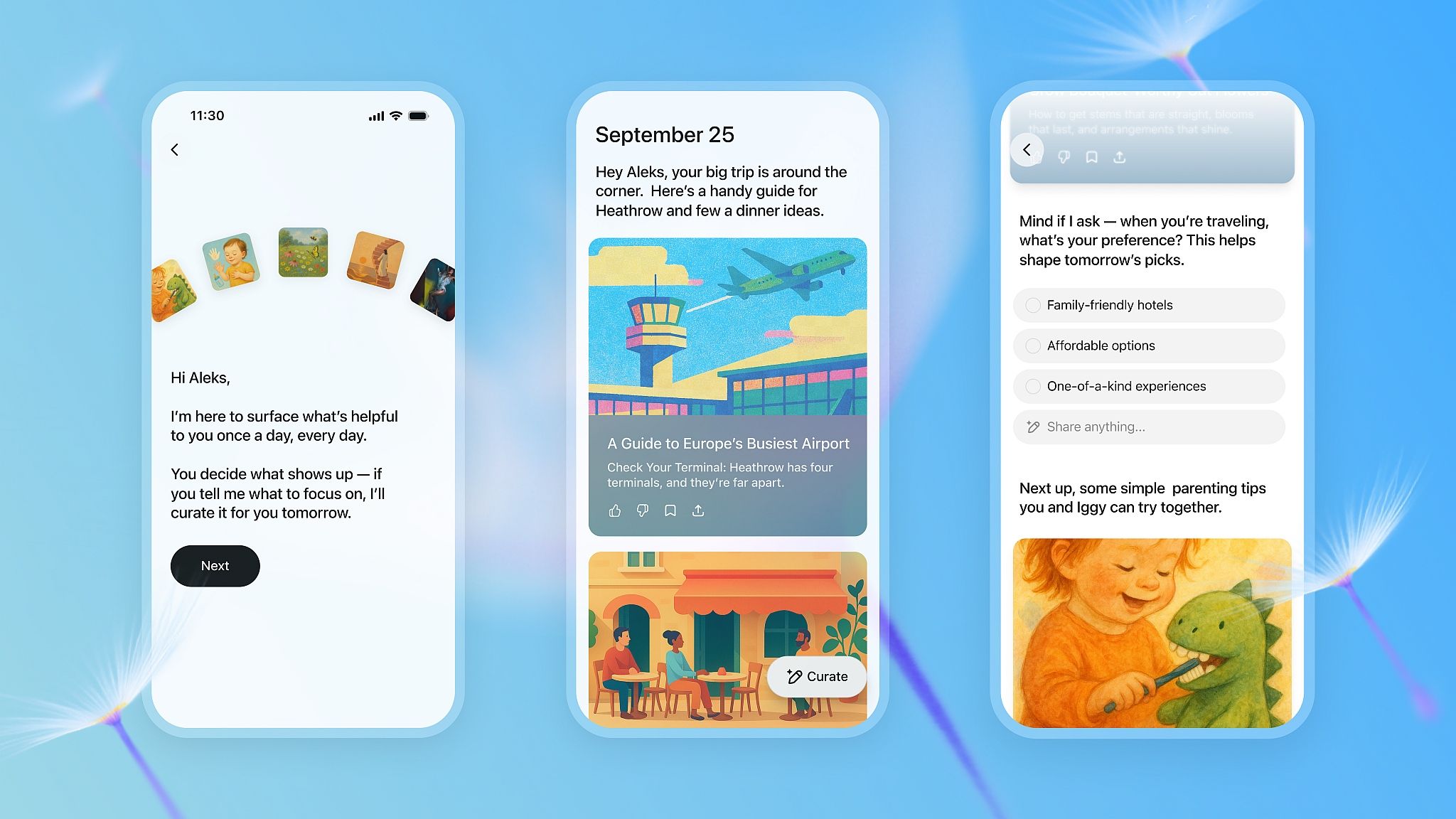OpenAI is exploring advertising within ChatGPT Pulse, its most personal AI feature yet. CEO Sam Altman called Pulse his "favorite feature we've launched in a long time" while hinting that Instagram-style ads could eventually make their way into users' daily AI briefings. The revelation signals OpenAI's growing focus on monetization beyond subscriptions as competition intensifies.
OpenAI just gave us the clearest signal yet about where AI advertising is headed. At Monday's DevDay event in San Francisco, CEO Sam Altman didn't just praise ChatGPT Pulse as his favorite recent launch - he opened the door to ads infiltrating users' most intimate AI interactions.
Pulse represents OpenAI's boldest personalization gambit yet. The feature digs deep into user transcripts, calendar appointments, and connected apps to research topics overnight, then serves up tailored daily briefings each morning. Think personalized workout routines, language lessons, news roundups, or restaurant recommendations for tonight's dinner plans. It's OpenAI's bid to make ChatGPT the first thing users check every day.
But here's where it gets interesting for OpenAI's bottom line. During a Q&A with reporters at DevDay, Altman revealed that while there are "no current plans" for ads within Pulse, the company is actively discussing it internally. More telling? He specifically praised Instagram's advertising model as something he "enjoys" - a clear hint about the direction OpenAI might take.
"To the degree we can find out cool things to do that actually seem helpful to users... maybe there's something to do there, but as has been clear, we approach ads with great caution," Altman told The Verge. That cautious optimism speaks volumes about OpenAI's evolving revenue strategy.
The timing isn't coincidental. OpenAI's compute costs are staggering, and Pulse itself is so resource-intensive that the company had to limit it to Pro subscribers despite originally planning a broader rollout. With Microsoft reportedly investing over $10 billion and monthly operational costs in the hundreds of millions, subscription revenue alone won't sustain OpenAI's ambitions.
The Instagram comparison is particularly revealing. Meta's advertising empire generates over $100 billion annually by weaving sponsored content seamlessly into users' feeds. Imagine that same approach applied to Pulse's hyper-personalized morning briefings - ads for workout gear alongside fitness routines, language learning apps within lesson summaries, or restaurant promotions embedded in dining suggestions.












